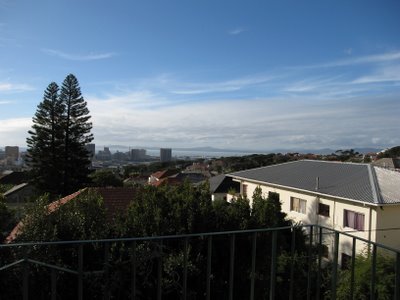Clever Livia
Well Kepler and Gallileo used to correspond and share stuff. That’s from about 1600-1615. and an italian with a german protestant #(weird sect –you will have to check I can’t remember)…
The thing is that it is hard to know in ancient times (ie the hellenestic age of science) who corresponded with whom but there must have been correspondance and in those days scientists/philosophers were often teachers with their band of disciples. There was almost certainly correspondance but I don’t know if anyone can cite particular examples of what was corresponded about..
After the hellenistic and roman ages, there is nothing to speak of in science until the growth of the abbeys (begin to be founded around early 4th century with the important scholastic orders being benedictine and franciscan). It is these orders/abbeys that became the first universities. I think the earliest interesting science correspondance might be in the end of the 11th beginning of the 12th when Robert Grossteste who I believe trained in Paris went to Oxford and became Roger Bacon’s teacher…or he may have been Bacon’s distant mentor in Paris but I think if you look this two guys up on the St Andrews history of maths/science site you might get something. If Bacon and Grossteste were both always in Oxford then clearly there is no correspondance but if one were in Oxford and the other in Paris there is a good chance of some correspondance on optics. Also, Bacon wrote to the Pope and said that someone should write an Encyclopaedia (not in those terms but basically that) and he was hoping that the Pope woul give him some cash for his work but instead he wrote back saying ‘good idea for this book thing- you write it’. which kinda put him in it a little.
Another one that might have some possible correpondance is Parcelsus writing to someone or other- maybe the rich and famous.
Kepler used to ask gallileo for telescopic observations and would share some of his data also. So it was communication about celestial observation.
I think that something to stress is that the roots of science in monasticism meant that science grew up in a culture of writing letters and associations with distanmt insitutions. And then from 1500 onwards if you want to do science you have to get cash which means at the very least doing a few lectures, writing letters or pamplhlets dedicated to trich folk. Also if you want to do science you need to know where everyone else was at before wasting your time. Another source of keeping distant relations with people is alchemy. So you might find some alchemists corresponding in some garbled way before 1600. Otherwise look up the people who lectured in anatomy at Padua at the end of the 16th just before Harvey. Begins with ‘V’.
But really all people who could write nad had an intellectual mission wrote letters and sought out like minds of which there were very few before 1650. so maybe the kepler galileo one is best because most people have heard of them and telescopic observation is pretty basic stuff. However I should say that the greatest science corresponder, might also be that greatest of science’s wheeler and dealer’s, Robert Hooke, curator of experiments at the RS before Newton took over the presidency. Without hooke’s spreading of correspondance the steam engine might have been a lot longer in coming. He shared knowledge between pretty much all scientists but the steam engine story c omes about via correspondance with Denis Papin (french and then I think became one of Boyle’s experimentalists) and on the English side I think Newcomen but it maybe Newcomen’s technological precursor, I cant remember.
Oh but you remember so much, my dear.
I'm embarrassed to say that this is what made it into my article:
Kepler and Galileo used to correspond about their findings, and scientists haven’t stopped talking across borders since.








